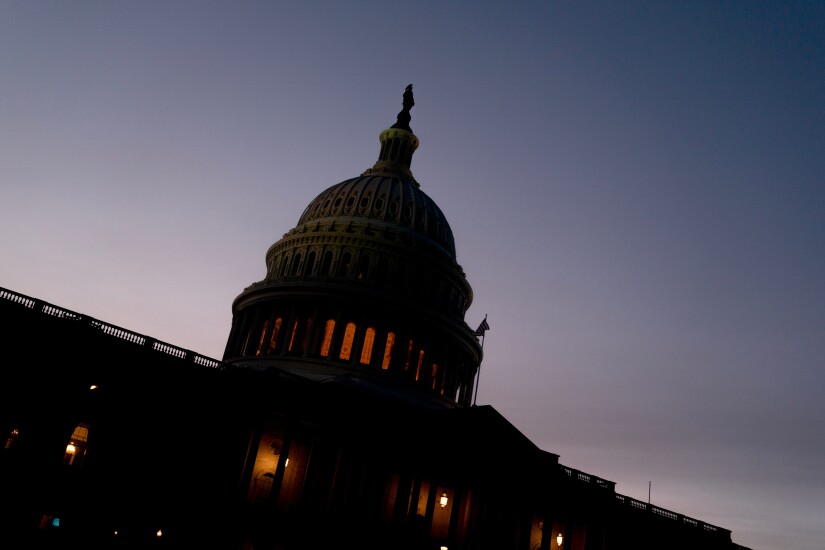Want unlimited access to top ideas and insights?
Wealth management professionals are counting down the days until the Presidential election, and according to
According to the poll of 213 advisors and other wealth management experts, 54% feel that former President Donald Trump winning a second term in the White House would be better for the industry than the 38% supporting Vice President Kamala Harris' bid for the presidency. Only 39% feel that Trump will win, compared to the 61% that say Harris is the likely victor.
Respondents showed higher confidence in Republican wins when it comes to the Senate and the House of Representatives, with 62% and 51% respectively predicting a majority in each legislative body.
"There are some real differences between regulation, tariffs and fiscal policy, but with the most likely outcome being a split government, the chances of large change is pretty low," Grant Bowers, senior vice president, portfolio manager and research analyst at Franklin Equity Group, said in an interview with FP's
Read more:
In addition to election results, advisors were asked, respective to their organizations, to weigh in on the policy areas that were most important for Congress and the next administration to address.
The economy took the top spot among roughly 58% of respondents, followed closely by the national debt and tax reform with 57% and 48%, respectively.
Bruce Heiman, a partner in the K&L public policy practice, said in an interview with FP's
"I think serious action to reduce the deficit, serious action to reduce the overall debt, is going to be triggered by a crisis of some kind in some markets, rather than just the Tax Cuts and Jobs Act," Heiman said.
Read more:
Below are the latest insights from wealth management experts on the upcoming election and what the tax landscape could look like once the results are in.










